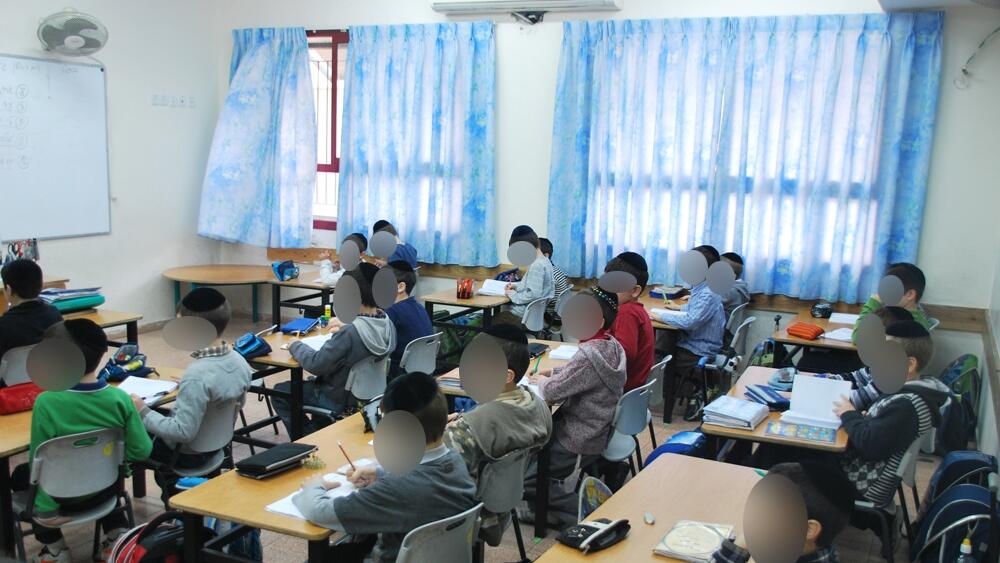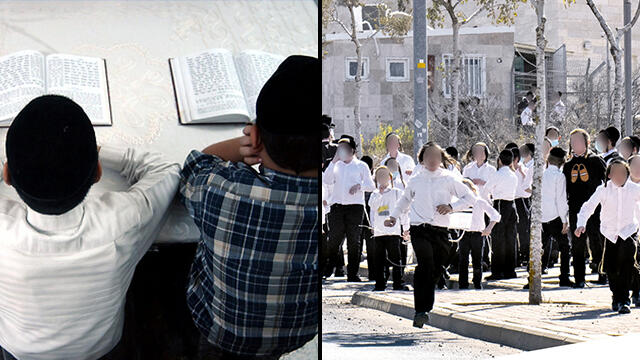Getting your Trinity Audio player ready...
Like vultures circling the skies in lookout for prey, cynical politicians pounced on Benjamin Netanyahu's deal to increase funding for ultra-Orthodox institutions that do not teach secular curriculum.
The agreement in question includes allocating 55% of the state budget assigned for the education system to Haredi educational institutions. Netanyahu agreed, and all hell broke loose.
3 View gallery


Yitzchak Goldknopf, Benjamin Netanyahu and Moshe Gafni
(Photo: Alex Kolomoisky, Amit Shaabi )
Those who oppose this move basically say that as long as these institutions refuse to teach secular subjects, ultra-Orthodox children should continue to study in boiling-hot caravans, with teachers who barely get paid.
Someone in the political system actually thinks this is the right way to compel the ultra-Orthodox to teach secular curriculum. If you also think that, here's some news for you - this type of coercion has failed to yield results in the past 30 years, and it will not work in the future.
There is no argument that secular education is an important tool to be financially stable. Knowing English and understanding math is essential. But in order to have a proper discourse on the subject, we need to let go of the prejudiced perception and arrogant view that secular people know what's best for the "primitive" ultra-Orthodox public.
Last week, a threat of a nationwide school strike hovered over Israel, with teachers demanding higher salaries. The Haredi teachers, who are used to extremely low salaries, know you can't strike for even one day.
Even when the COVID-19 pandemic was raging in Israel, the Haredi public was fighting like hell the decision to shut down the education system. In the view of the Haredi public, educational institutions are the last place you should think about harming.
So before you lecture us about the curriculum, let's discuss the intentions. Do you know any other political party whose election campaign and demands are focused solely on education and the future of children?
Are core studies not important? They absolutely are. Does knowing several languages help in life? It does. The Haredi public is becoming more and more diverse. Secular curriculum are in fact taught in some institutions. As for the rest, solutions can be incentivized.
But again, to have a discourse on the subject, one must first understand the place of education in the ultra-Orthodox mindset. Maybe there's something to fix, maybe there are flaws, but the Haredi public doesn't feel inferior compared to the general population when it comes to education.
Trust the Haredi public to know when something is good for them and when something is not. The discussion about secular education we will have at a later date. First, get rid of your prejudices, then we'll move on to other matters.



